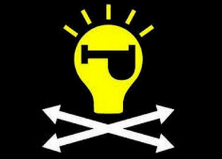ISP Teksavvy Appeals in Hurt Locker Piracy Case
lundi 6 avril 2015 à 11:38 After numerous experiments elsewhere, notably in the US, two years ago Voltage Pictures took its turn piracy-into-profit business model to Canada.
After numerous experiments elsewhere, notably in the US, two years ago Voltage Pictures took its turn piracy-into-profit business model to Canada.
The company’s targets were 2,000 Internet subscribers at local ISP Teksavvy. The early stages of the case saw the ISP dig in its heels while bringing on board the Canadian Internet Policy and Public Interest Clinic (CIPPIC) with the aim of protecting consumers from potentially large fines.
While CIPPIC was allowed to intervene, the subscribers’ identities were ordered to be handed over and with that in hand the arguments turned to who would have to pay for proceedings thus far.
Needless to say, Voltage Pictures’ and Teksavvy’s assessments were at the opposite ends of the spectrum, with the former saying that should it pay around $884.00 and the latter claiming a few hundred thousand dollars, $346,480.68 to be exact.
In the event the court rejected both sides’ claims, but the ruling was far away from Teksavvy’s expectations. The Federal Court told Voltage to pay $21,557 – $17,057 in technical administrative costs plus $4,500 in legal fees – associated with the IP-address lookups.
After being awarded just 6% of its original claim, it comes as little surprise that the ISP has now filed an appeal against the decision.
Teksavvy says that Prothonotary Aronovitch’s decision to disallow the large majority of its claim was flawed in that it was “based upon a wrong principle, an error of law and/or misapprehensions of the fact that cannot reasonably be supported by the evidence.”
Outlining its case, the ISP says that Prothonotary Aronovitch improperly interpreted the scope of an earlier decision by Prothonotary Aalto concerning Norwich order (disclosure order) jurisprudence, including the nature of costs to which an innocent third-party respondent (Teksavvy in this case) is entitled.
The ISP further asserts that Prothonotary Aronovitch relied on “irrelevant jurisprudence” to justify excluding Teksavvy’s costs and disallowing costs on the basis they amounted to the “costs of doing business.”
In support of several other complaints and claims, Teksavvy demands a four-hour hearing to outline why it should achieve the following:
– An order which awards Teksavvy “reasonable legal costs, administrative costs and disbursements” or an amount the Court deems “just and appropriate”
– An order which awards Teksavvy its costs in the previous hearing before Prothonotary Aronovitch
– An award for the costs of this appeal, plus any “further and other relief” the court might deem “just”
Commenting on Teksavvy’s decision to appeal, copyright lawyer Howard Knopf says that the ISP’s earlier decision to “take no position” on the original Voltage disclosure application may have cost the company dearly.
“This appears to have been a key factor in the Federal Court’s refusal to reward TekSavvy and its counsel with almost $180,000 in legal fees,” Knopf writes.
“Ironically, if TekSavvy had actually opposed Voltage’s motion, it may well have been in a much better position to successfully seek costs. Prothonotary Aronovitch cites [a similar case] where two the ISPs actively opposed the disclosure motion. In that case, the Court ultimately denied the motion but awarded the costs of the motion to the third-party ISPs who had opposed it.”
So while the parties battle it out under appeal, there is still the matter of the consumers who are expecting a letter through the post from Voltage Pictures. Those letters still haven’t gone out and before they do so their content much be approved by the court. While that may offer recipients some protection, the end game is almost guaranteed – demands for some kind of cash settlement to avoid supposed legal action.
And according to Voltage counsel James Zibarras, that be could more costly than people might have been led to believe.
Discussions thus far have indicated that statutory damages in such cases sit at $5,000. However, Zibarras says that plaintiffs can also opt for actual damages instead. These take into consideration damages caused by those who distribute content as well as upload, he says.
“And this is the thing, the people that Voltage goes after… technically aren’t downloaders. What Voltage goes after is people that make their product available for upload,” Zibarras says.
“Once you switch to actual [damages], then there’s no cap, it’s whatever we can prove.”
While that assertion is refuted by lawyer Howard Knopf, one thing is for certain. Voltage certainly sees dollar signs in this action and it’s not going to be giving up anytime soon.
Source: TorrentFreak, for the latest info on copyright, file-sharing, torrent sites and anonymous VPN services.
 This week we have five newcomers in our chart.
This week we have five newcomers in our chart.
 Last week Microsoft announced Halo Online, an all-new, free-to-play online multiplayer experience on PC.
Last week Microsoft announced Halo Online, an all-new, free-to-play online multiplayer experience on PC. Well, I for one don’t give a flying fuck. I don’t care if the “pirate movement” lives, exists or whatever. I only care about the causes. Too much focus is put on the form, liveliness and influence of groups, organizations and nostalgic icons.
Well, I for one don’t give a flying fuck. I don’t care if the “pirate movement” lives, exists or whatever. I only care about the causes. Too much focus is put on the form, liveliness and influence of groups, organizations and nostalgic icons. 